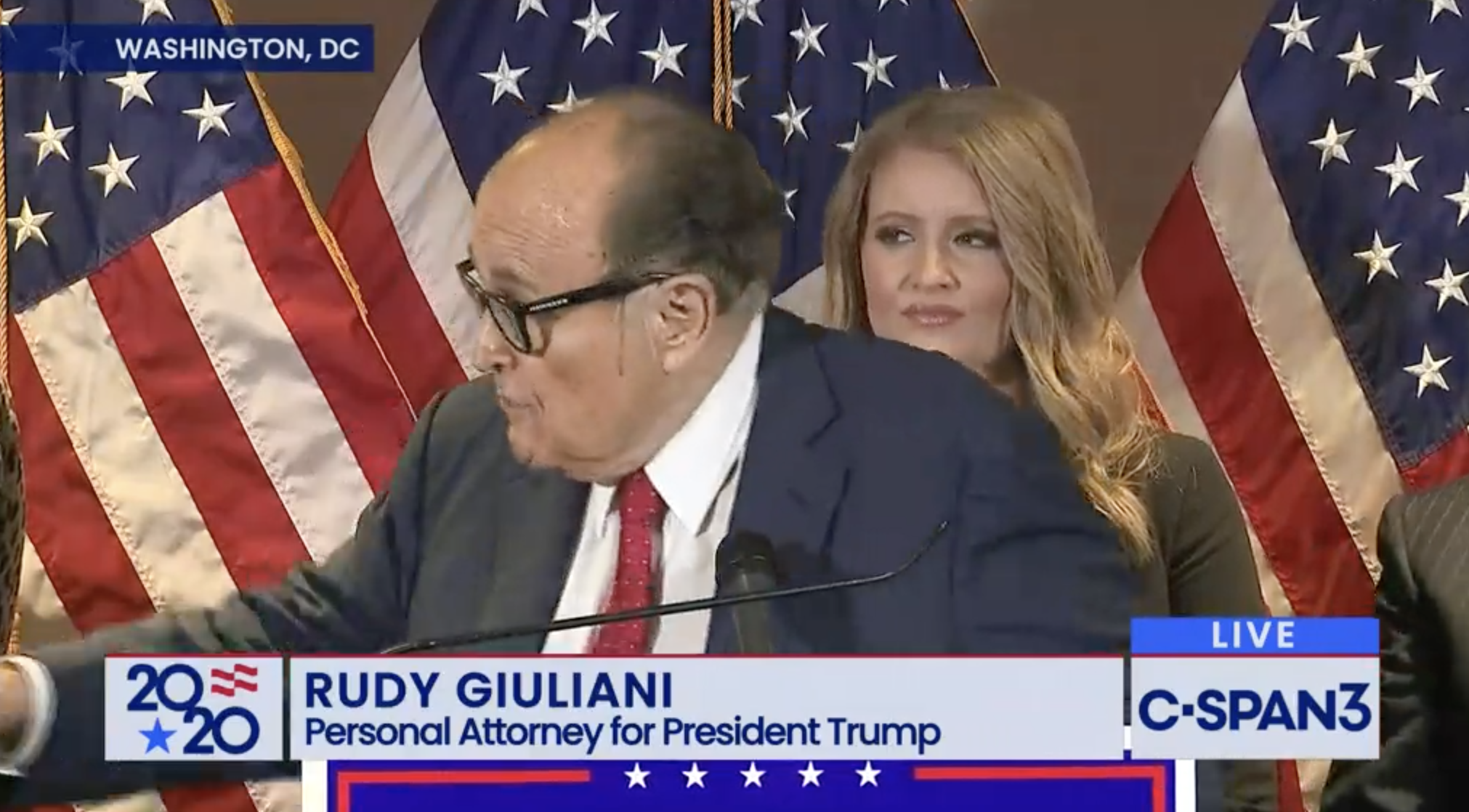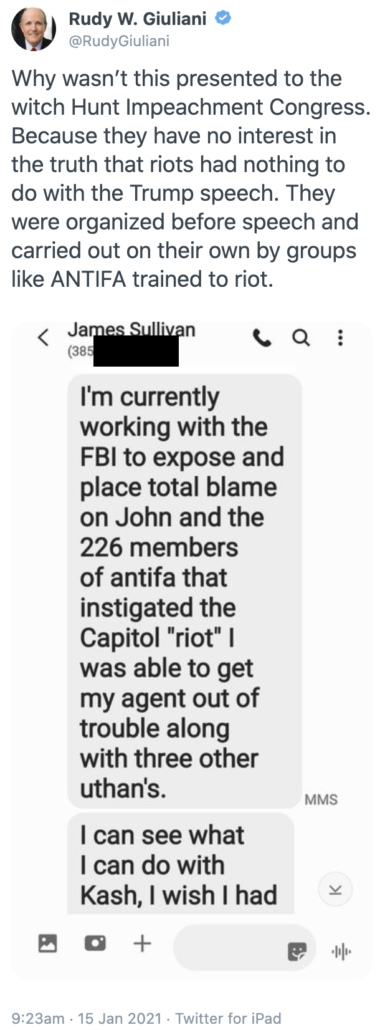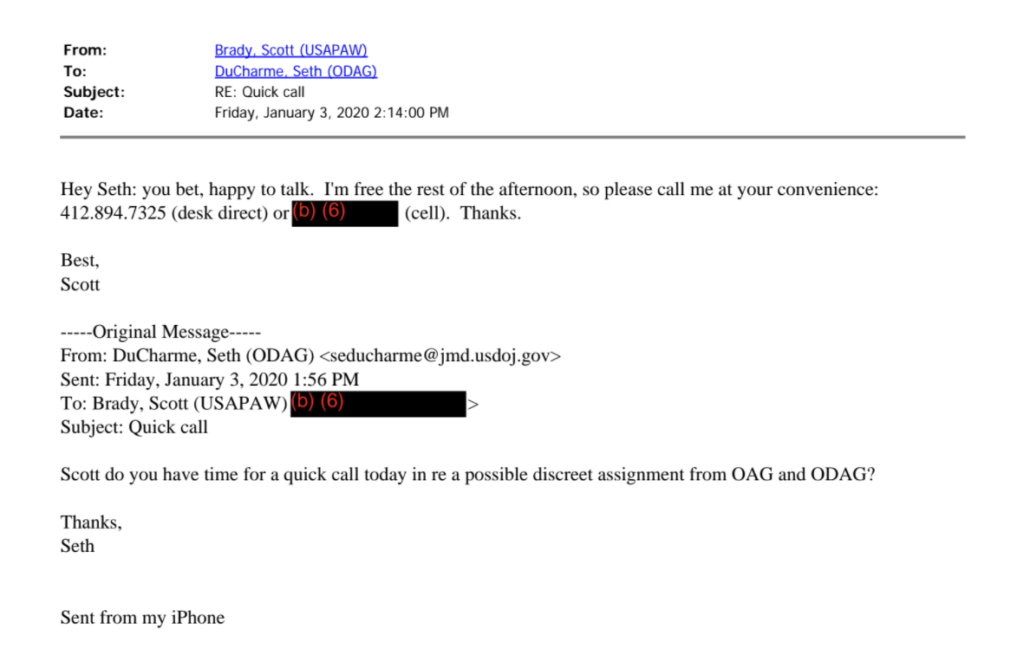SDNY Obtained Warrant(s) for Foreign Agent Charges before John Demers Reviewed the Perfect Transcript
Had DOJ followed its own rules in 2019, Donald Trump’s “perfect phone call” with Volodymyr Zelenskyy should have been linked to the ongoing criminal investigation into Lev Parnas. Instead, DOJ limited the review of the criminal referral of the whisteblower complaint in such a way that prevented investigators from making that link. The Parnas warrants recently liberated by NYT reveal that failure was even more damning than previously known.
On August 14, 2019, CIA General Counsel Courtney Elwood told National Security Division head John Demers that someone in the CIA had expressed concerns about the July 25 call. The next day, on August 15, 2019, Demers went to the White House to review the transcript of it.
Mr. Eisenberg and Ms. Elwood both spoke on Aug. 14 to John Demers, the head of the Justice Department’s national security division, according to three people familiar with the discussion. Ms. Elwood did not pass on the name of the C.I.A. officer, which she did not know because his concerns were submitted anonymously.
The next day, Mr. Demers went to the White House to read the transcript of the call and assess whether to alert other senior law enforcement officials. The deputy attorney general, Jeffrey A. Rosen, and Brian A. Benczkowski, the head of the department’s criminal division, were soon looped in, according to two administration officials.
Department officials began to discuss the accusations and whether and how to follow up, and Attorney General William P. Barr learned of the allegations around that time, according to a person familiar with the matter. Although Mr. Barr was briefed, he did not oversee the discussions about how to proceed, the person said.
While DOJ was dawdling over what to do, on August 12, the whistleblower went to Intelligence Community Inspector General Michael Atkinson and filed a formal complaint. ODNI made a criminal referral at the end of August. And then DOJ declined, almost right away, to investigate.
Ms. Elwood and Mr. Eisenberg learned only later about the complaint, filed on Aug. 12, and did not know it was sent by the same officer who had sent the information anonymously to her.
At the end of August, the office of the director of national intelligence referred the allegations to the Justice Department as a possible criminal matter. Law enforcement officials ultimately declined to open an investigation.
I have always pointed out the problem with this tale. Since 9/11, DOJ’s expectation is that when investigators obtain a tip about anything that might pertain to national security, they run it against FBI holdings to see if there’s a known link to any existing investigation.
Had DOJ’s investigators scrutinized the OCCRP story about Lev Parnas and Igor Fruman cited three times in the complaint, had they done searches on all the identifiers implicated by reference in the complaint, they should have found the ongoing investigation into Parnas and Fruman at SDNY. (On review, even the unclassified part of the complaint mentioned people, like Andriy Telizhenko, who were likely the focus of intelligence scrutiny already, though perhaps not yet at FBI.)
But investigators didn’t get the complaint. According to a public confession Kerri Kupec made in September 2019, they got only the call transcript.
“In August, the Department of Justice was referred a matter relating to a letter the director national intelligence had received from the inspector general for the intelligence community regarding a purported whistleblower complaint. The inspector general’s letter cited a conversation between the president and Ukrainian President Zelensky as a potential violation of federal campaign finance law, while acknowledging that neither the inspector general nor the complainant had firsthand knowledge of the conversation,” Kupec said.
Relying on established procedures set forth in the justice manual, the department’s criminal division reviewed the official record of the call and determined based on the facts and applicable law that there was no campaign finance violence [sic] and that no further action was warranted. All relevant components of the department agreed with this legal conclusion, and the department has concluded this matter,” Kupec concluded. [my emphasis]
They didn’t assess the complaint. They assessed the transcript.
That was always a self-evidently corrupt decision — a decision that, if Bill Barr (who definitely knew of the Parnas and Fruman investigation) and Jeffrey Rosen (who likely did) were involved would be provably an effort to prevent investigators from tying the President to Parnas and Fruman.
But the timeline looks worse given something revealed in the warrants from the investigation liberated by the NYT last week.
The indictment used to arrest Parnas and Fruman on October 9, 2019 only charged them for campaign finance crimes: Conspiracy to violate campaign finance law by donating — including to Trump’s PAC and Pete Sessions — in the name of their front company Global Energy Partners, false statements to the FEC about the donation to Trump’s PAC, filing a materially false document to the FEC about the same, and conspiracy to make cannabis-related political donations using foreign money. The Russian source of those funds, Andrey Muraviev was not yet public. And while the donation to Pete Sessions was intimately connected to the firing of Marie Yovanovitch, that wasn’t mentioned in the first indictment.
What appeared in that indictment was consistent with the first two warrants obtained against Parnas and Fruman. The first, served on Google and Yahoo on January 18, 2019, sought evidence of those foreign and straw donor crimes, along with money laundering and fraud. It cited contacts with Sessions’ office, with Ron DeSantis, and even (regarding what the investigation would ultimately show pertained to Fraud Guarantee), Rudy Giuliani. But even in the discussions of Sessions, there was no mention yet of Yovanovitch.
That began to change in the second warrant, served on Apple for iCloud content on May 16, 2019, the first one after Bill Barr would have started getting briefings. That warrant remained focused on those foreign and straw donor crimes, though added false statements for Parnas and Fruman’s claims to the FEC about what they were up to. It added Muraviev to the inquiry. It took out a request to look for communications with individuals who work at “[redacted].”
That second warrant affidavit included a three page section focused on Parnas and Fruman’s recruitment of Pete Sessions to help get Marie Yovanovitch fired. The most striking thing about that second warrant is that SDNY obtained it the day after public notice of her removal, which development it noted in the warrnt. The warrant affidavit appears to have removed a reference to an email sent to Rudy the day after the Campaign Legal Center first disclosed the Parnas and Fruman grift (perhaps upon discovering that it pertained to Parnas’ effort to recruit Rudy into Fraud Guarantee). Still, there was no mention in that second warrant — the one obtained the day after Yovanovitch’s ouster was confirmed — of any foreign agent ties.
On August 14, presumably blissfully unaware of all the efforts to cover up Trump’s extortion attempt in DC, SDNY attempted to get at least two warrants, one requiring Yahoo and Google to provide new email content, everything generated since the January 18 warrant, and another asking for permission to examine the previously obtained content for new crimes. I phrase it that way for two reasons: First, because those warrants were docket number 19 MJ 7593 and 7595; there’s undoubtedly at least one more, 19 MJ 7594, targeting something or someone else (possibly either Muraviev or Pete Sessions). And while Magistrate Judge Henry Pitman approved the warrant permitting SDNY to examine already collected content for new crimes, they bolloxed it somehow. As SDNY explained in an October 17 letter to Judge Oetken,
[T]he Government is not presently able to locate a copy of the August 14 warrant itself, which may be the result of a clerical error, although it is possible a warrant was not submitted in connection with the August 14 application. As such, the Government respectfully requests that the Court review the attached agent affidavit, which was sworn before Judge Pitman on August 14, and issue the attached warrant which would authorize the Government to seize the materials sought in the August 14 application.
But they did get that warrant, 19 MJ 7593, which required Yahoo and Google to provide new content, content that would be scrutinized under SDNY’s expanded focus.
For the first time, SDNY asked for permission to review Parnas and Fruman’s communications for evidence that they or others were unregistered agents of a foreign power under either FARA or 18 USC 951. Those warrants also asked to look for evidence of bribery (a prong of the investigation that appears to have been dropped after interviewing Sessions in the wake of the Parnas and Fruman arrest).
Normally, by the time a US Attorney’s office contemplates such charges, they involve NSD. According to Geoffrey Berman’s book, before SDNY charged Parnas and Fruman, they got Public Integrity’s approval, at 4AM in the middle of the night! It’s certainly possible the “Sovereign District of New York,” as people jokingly describe SDNY’s notorious independence, did not. But it certainly raised the stakes on the tie between Parnas and Fruman and the President.
By the time John Demers reviewed the transcript of Trump’s call with Volodymyr Zelenskyy, the topic of his call had already been made a national security investigation.







